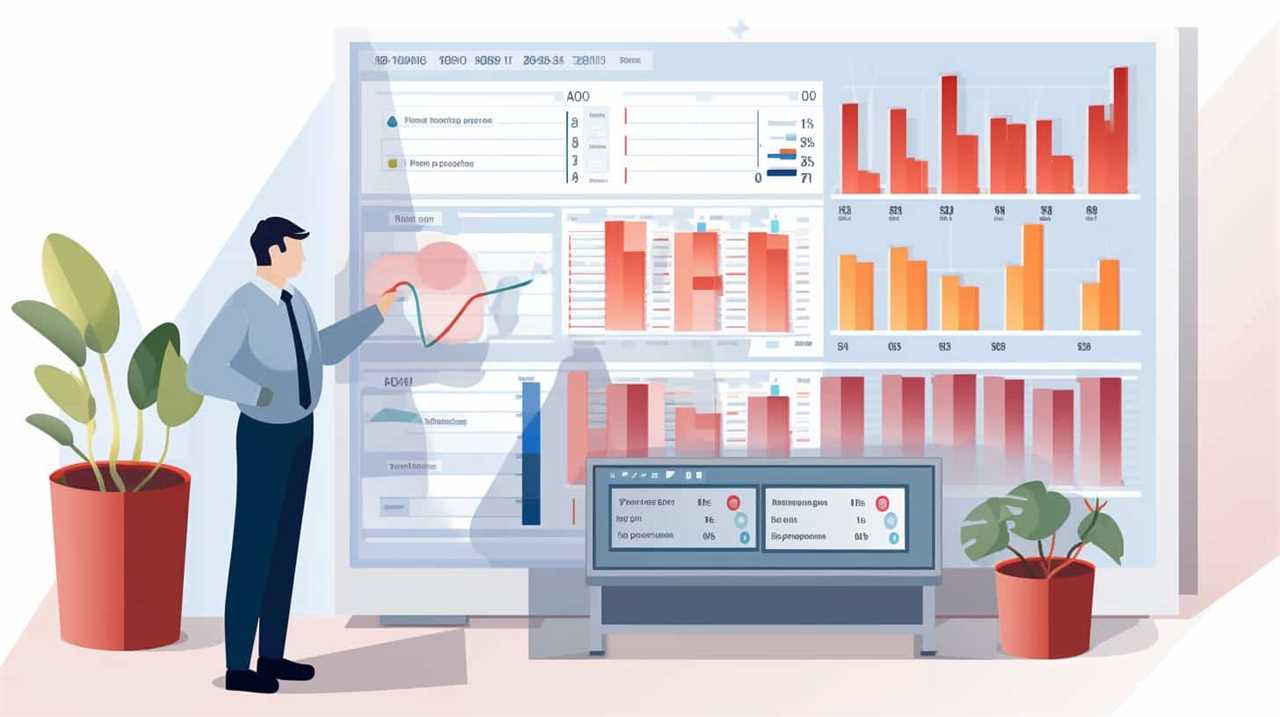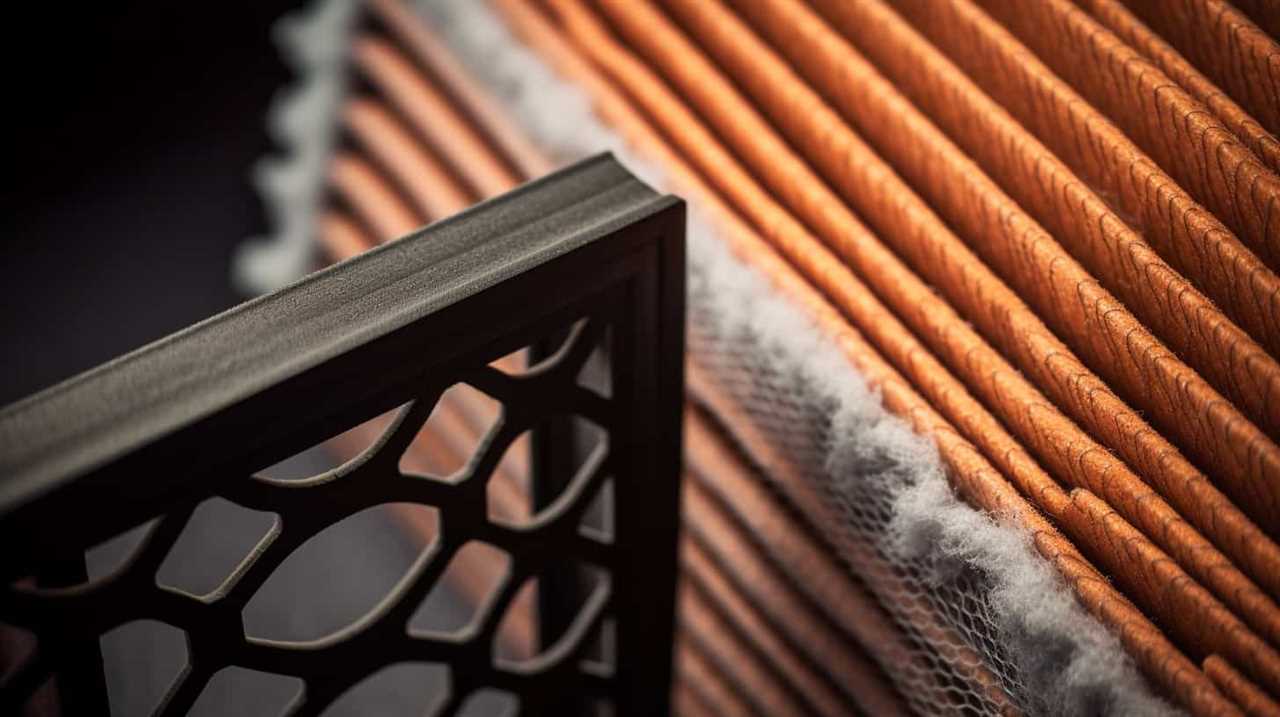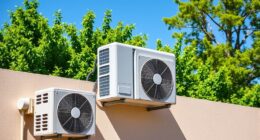Are you fed up with basing your heat pump choices solely on energy ratings? We get it. That’s why we’re here to assist you in making more informed decisions.
In this article, we’ll delve beyond the numbers and explore the factors that truly matter in your heat pump selection. From performance and reliability to environmental impact and cost considerations, we’ll equip you with the knowledge you need to make an informed decision.
So let’s dive in and find the perfect heat pump for your needs.
Key Takeaways
- Consider factors beyond energy ratings when selecting a heat pump, such as the expected lifespan and installation requirements.
- Look for heat pumps from reputable manufacturers known for durability and read customer reviews for insights.
- Take into account performance and reliability considerations, including regular maintenance, noise levels, and features that contribute to effectiveness.
- Evaluate the environmental impact and sustainability of heat pumps, considering factors like lifecycle analysis and compatibility with renewable energy sources.
Understanding Energy Efficiency Ratings
We recommend considering the Seasonal Energy Efficiency Ratio (SEER) and Heating Seasonal Performance Factor (HSPF) ratings when assessing the energy efficiency of a heat pump. These ratings provide valuable information about the unit’s ability to cool and heat efficiently.
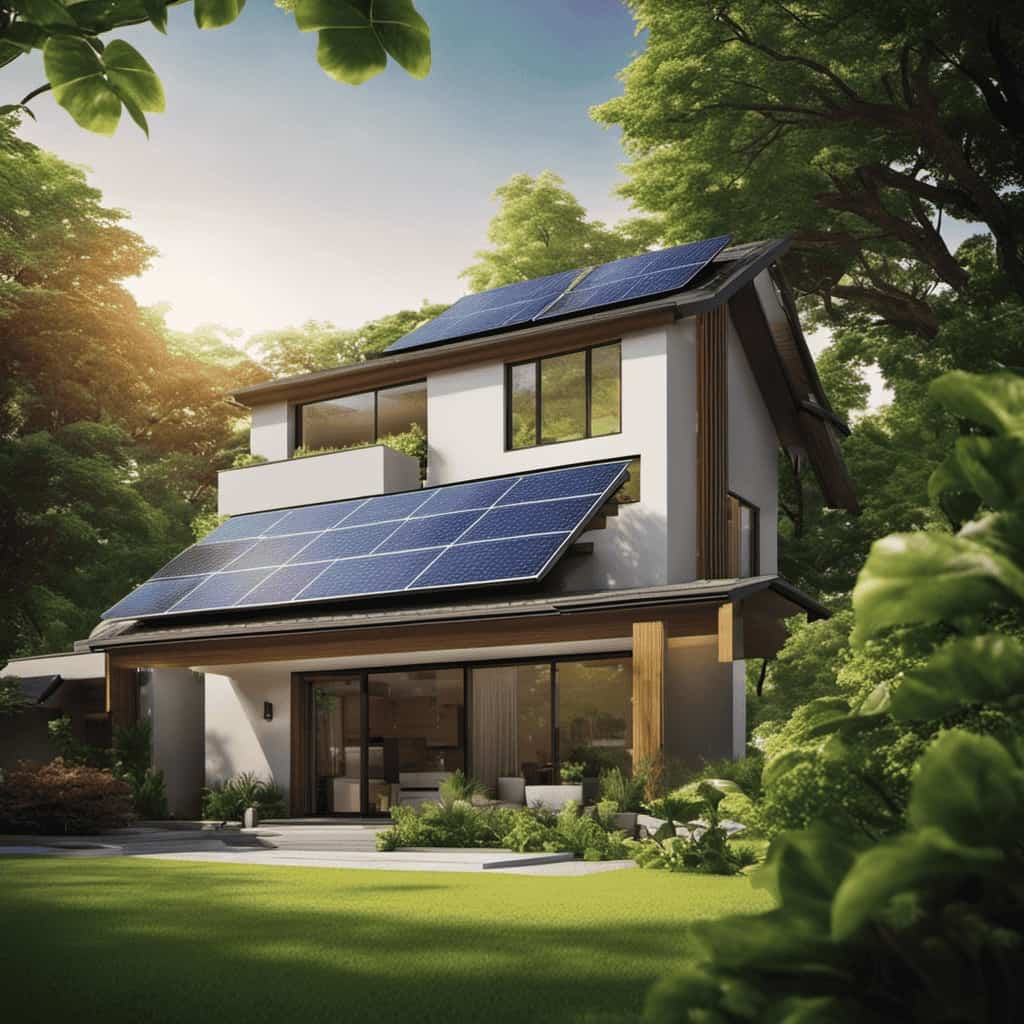
The SEER rating measures cooling efficiency, while the HSPF rating measures heating efficiency. Higher ratings indicate better energy efficiency, which leads to lower energy consumption and reduced utility bills. When selecting a heat pump, it’s important to look for models with high SEER and HSPF ratings, as this will ensure optimal energy savings.
Additionally, many energy efficiency incentives and rebates are available for high-rated heat pumps, making them a cost-effective long-term investment.
Now, let’s delve into the factors to consider beyond energy ratings that will help you make an informed decision.
Factors to Consider Beyond Energy Ratings
One important factor to consider beyond energy ratings is the number of years the heat pump is expected to last. While energy efficiency is crucial, it’s equally important to invest in a heat pump that will provide reliable performance for many years to come. Here are three key considerations to keep in mind:

-
Installation requirements: Before purchasing a heat pump, it’s important to assess whether your home meets the necessary installation requirements. Factors such as available space, electrical capacity, and ductwork compatibility should be considered to ensure a smooth and successful installation process.
-
Maintenance considerations: Regular maintenance is essential for keeping your heat pump operating at peak performance. Consider the maintenance requirements of different models, such as filter replacement, coil cleaning, and lubrication needs. Opting for a heat pump with easy access to components can simplify maintenance tasks.
-
Durability and longevity: Look for heat pumps from reputable manufacturers known for producing high-quality, long-lasting equipment. Read customer reviews and seek recommendations from HVAC professionals to gauge the durability and longevity of different models.
Considering these factors beyond energy ratings will help ensure you choose a heat pump that meets your installation requirements, requires manageable maintenance, and provides reliable performance for years to come.

Transitioning into the subsequent section on performance and reliability considerations, let’s delve deeper into the features and technologies that can contribute to a heat pump’s overall performance and reliability.
Performance and Reliability Considerations
When considering performance and reliability, it’s important to evaluate the specific features and technologies that contribute to a heat pump’s overall effectiveness. One aspect to consider is the maintenance requirements of the heat pump. Regular maintenance, such as cleaning filters and coils, is crucial to ensure optimal performance and longevity of the unit.
Additionally, noise levels should be taken into account, especially if the heat pump will be installed in a residential setting where quiet operation is desired. Some heat pumps are designed with noise reduction features, such as sound-dampening insulation and advanced compressor technology, which can greatly minimize noise levels.
By considering these factors, homeowners can select a heat pump that not only performs well but also provides reliable operation.

Now let’s move on to the next section, where we’ll discuss the environmental impact and sustainability of heat pumps.
Environmental Impact and Sustainability
Let’s consider the environmental impact and sustainability of heat pumps. When evaluating the overall environmental performance of heat pumps, it’s important to conduct a lifecycle analysis. This analysis takes into account the energy used during the manufacturing, operation, and disposal of the heat pump, as well as any associated greenhouse gas emissions.
Here are three key points to consider:
-
Lifecycle Analysis: By assessing the environmental impact of a heat pump throughout its entire lifecycle, we can gain a comprehensive understanding of its sustainability. This analysis considers factors such as raw material extraction, manufacturing processes, transportation, and end-of-life disposal.
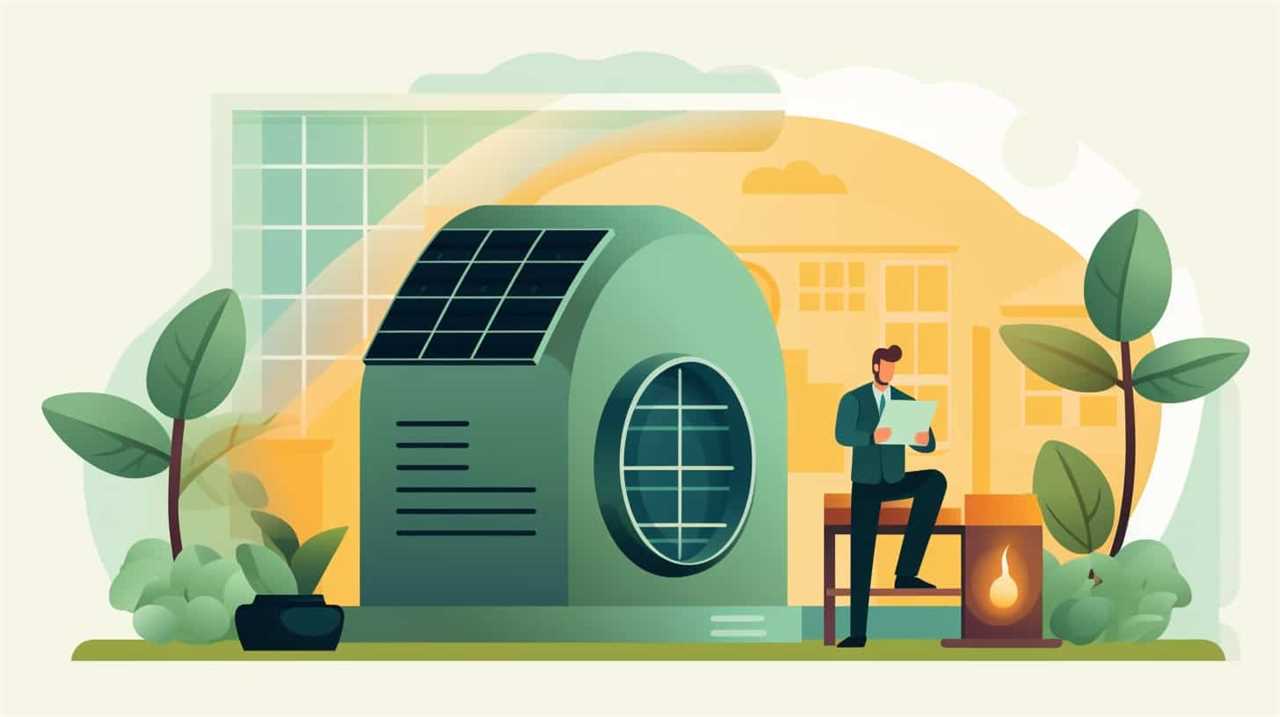
-
Renewable Energy Integration: Heat pumps are highly compatible with renewable energy sources such as solar and wind power. By utilizing renewable energy to power heat pumps, we can further reduce their environmental impact and increase their sustainability.
-
Reduced Carbon Emissions: Heat pumps offer a significant reduction in carbon emissions compared to traditional heating and cooling systems. By utilizing the heat transfer process, heat pumps can provide efficient heating and cooling without relying on fossil fuels, thus reducing greenhouse gas emissions.
Considering these factors can help us make informed decisions when selecting heat pumps, ensuring that we prioritize both environmental impact and sustainability.
Cost Considerations and Return on Investment
To accurately assess the cost considerations and return on investment of heat pump selection, we must evaluate factors such as installation costs, maintenance expenses, and potential energy savings.
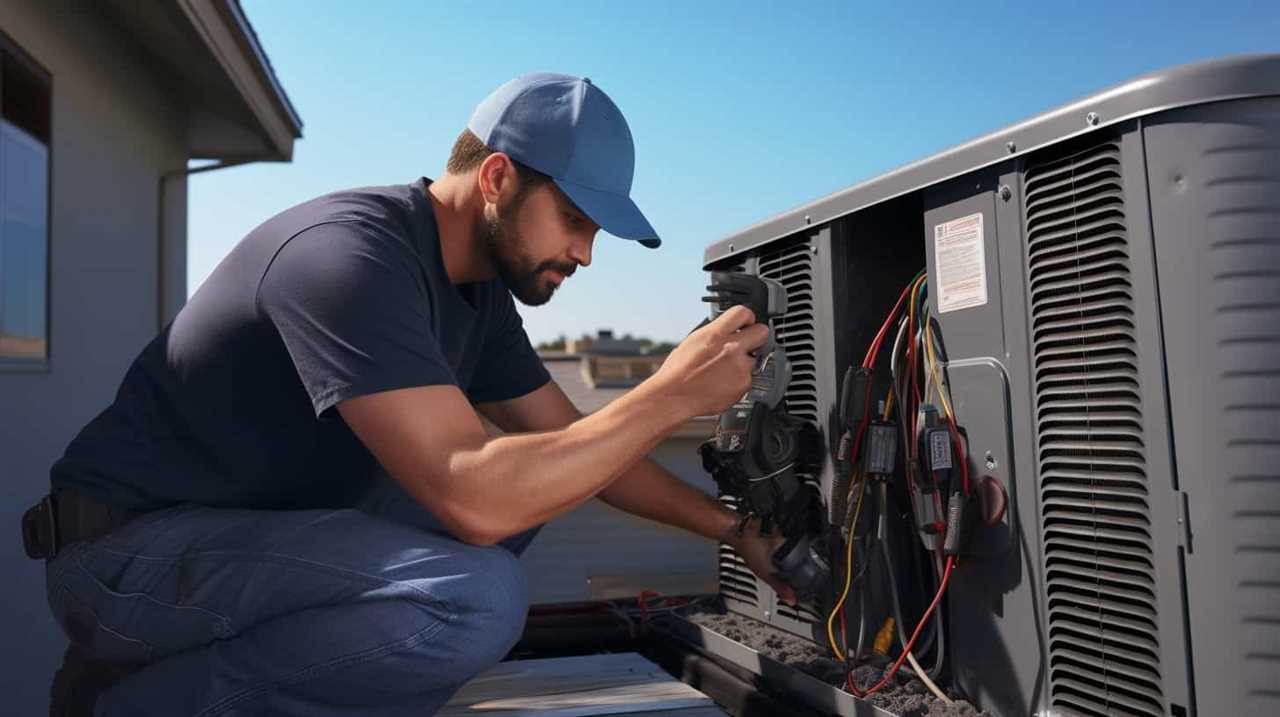
A comprehensive cost effectiveness analysis is crucial in determining the long term savings potential of a heat pump system.
Installation costs can vary depending on factors such as the type of heat pump, the size of the system, and any additional modifications required for the installation.
Maintenance expenses include regular servicing, filter replacements, and any repairs that may be needed over the lifespan of the heat pump.
However, the potential energy savings offered by a high-efficiency heat pump can offset these costs significantly.
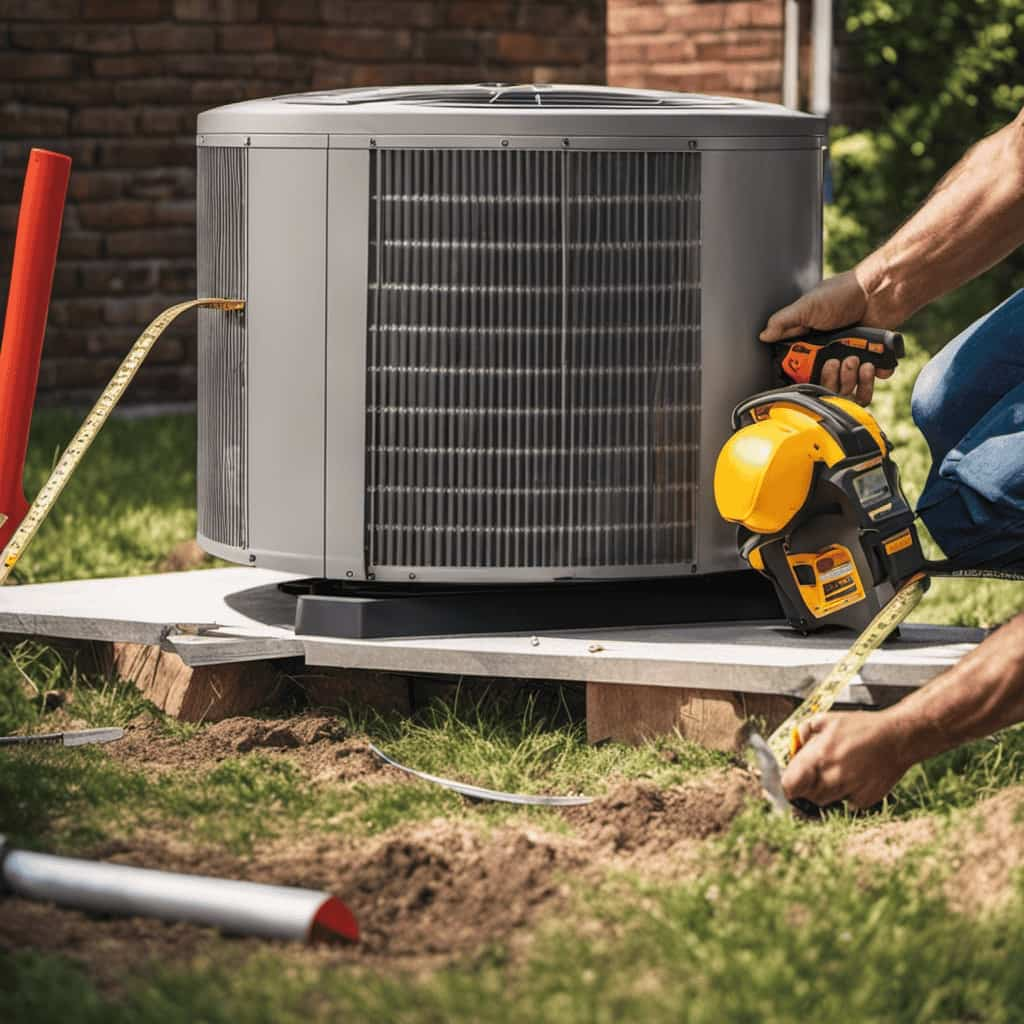
Frequently Asked Questions
Are There Any Government Incentives or Rebates Available for Heat Pump Installations?
There are government incentives and heat pump rebates available for installations. We can provide detailed information about these incentives and help you take advantage of the savings. Let us guide you through the process.
How Can I Estimate the Actual Savings on My Energy Bills by Switching to a Heat Pump?
To estimate energy savings, compare current energy costs to projected costs with a heat pump. Consider factors like insulation, climate, and desired indoor temperature. A professional evaluation can provide a more accurate estimation.
Can a Heat Pump Be Used for Both Heating and Cooling in All Climates?
Yes, a heat pump can be used for both heating and cooling in all climates. However, it’s important to consider heat pump efficiency and sizing to ensure optimal performance and energy savings.
What Maintenance and Servicing Is Required for a Heat Pump?
Heat pump maintenance and servicing are crucial for optimal performance. Regularly cleaning or replacing filters, inspecting and lubricating components, and checking refrigerant levels ensure efficiency and extend the lifespan of the system.

Are There Any Potential Health Concerns Associated With Using a Heat Pump?
Potential health concerns associated with using a heat pump include air quality issues due to inadequate filtration, as well as noise pollution. Additionally, the environmental impact of heat pumps should be considered, such as refrigerant leakage.
Conclusion
In our search for the perfect heat pump, we’ve delved into the world of energy efficiency ratings and considered factors beyond those ratings. We have also explored performance, reliability, environmental impact, and cost considerations.
Our journey has revealed that selecting a heat pump goes beyond just the numbers; it’s about making a choice that aligns with our values and goals.
So, let’s choose smarter, with a heat pump that not only saves energy but also warms our hearts with its lasting impact on our planet.
